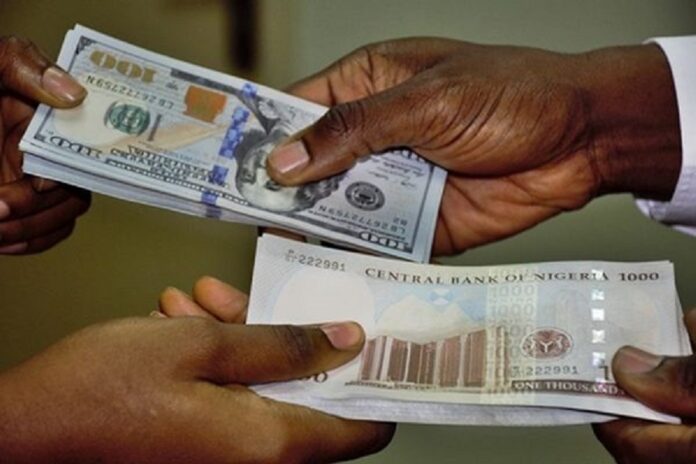

The Nigerian naira experienced a continued decline on Saturday in the parallel market, trading at N950 per US dollar, in contrast to the N930 exchange rate witnessed just a few days earlier on Wednesday.
In a contrasting trend, the naira displayed resilience on the Investors and Exporters’ (I&E) window, concluding at an improved rate of N781 per US dollar, compared to its initial opening rate of N782 per US dollar.
Bureau De Change (BDC) operators in Lagos reported a noticeable surge in demand for foreign currency within the informal market. Notably, the buying price for the dollar was pegged at N935, while the selling price reached N950, yielding a profit margin of N15.
Simultaneously, the International Monetary Fund (IMF) highlighted that Nigeria’s adoption of loose fiscal and monetary policies had led to an excessive influx of liquidity, thereby posing challenges for the naira’s stabilization against the US dollar. This phenomenon has persisted even after the Central Bank of Nigeria (CBN) granted the currency the freedom to trade openly.
Analysts echoed similar sentiments, attributing the naira’s depreciation to an overabundance of cash within the financial system. Furthermore, some analysts specifically pointed fingers at state governors, suggesting that their actions of accumulating dollars were contributing to increased pressure on the foreign exchange (FX) market.
The Minister of the Federal Capital Territory (FCT), Nyesom Wike, has dismissed rumours suggesting he…
The Senator representing Benue South Senatorial District and Senate Minority Leader, Comrade Abba Patrick Moro,…
Armed men suspected to be bandits raided Agbo Vengav, a community in Udam, Gwer West…
Former Governor of Benue State, Chief Samuel Ortom, has called off all planned celebrations for…
Benue State Governor, Hyacinth Alia, has appointed renowned music icon, Innocent "2Face" Idibia, as the…
Governor Hyacinth Alia has stressed the importance of taking a clear-eyed, strategic approach to security…